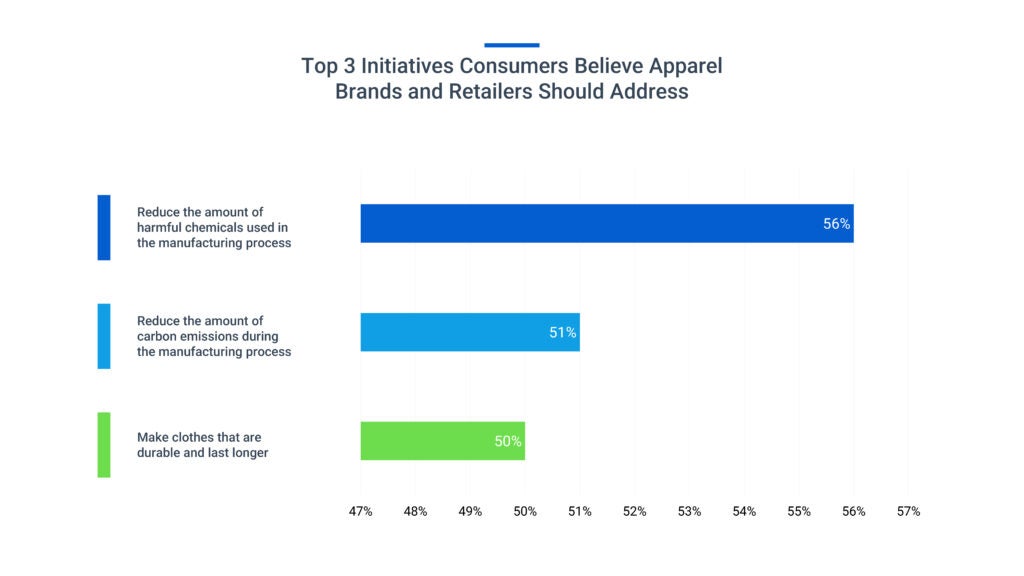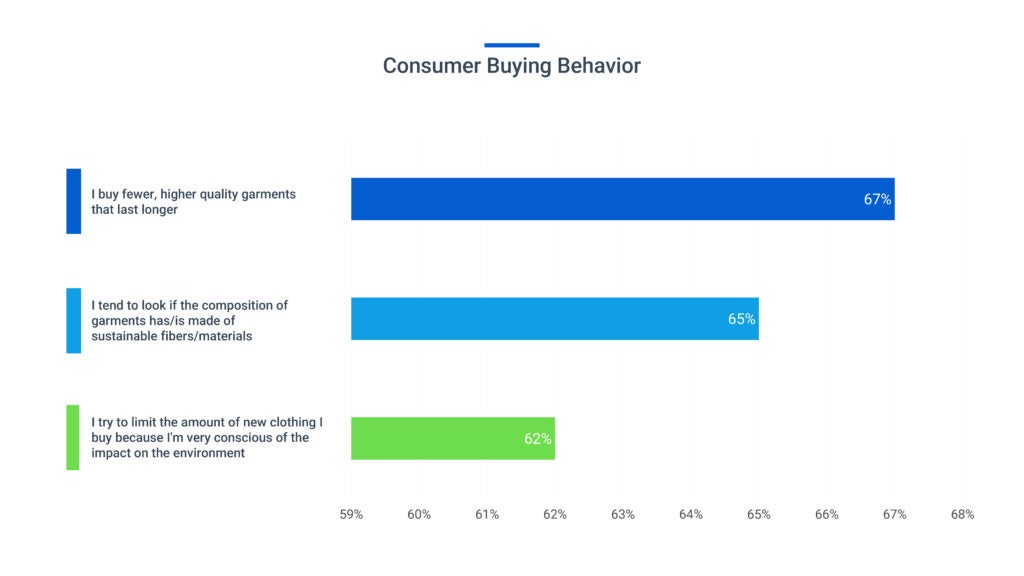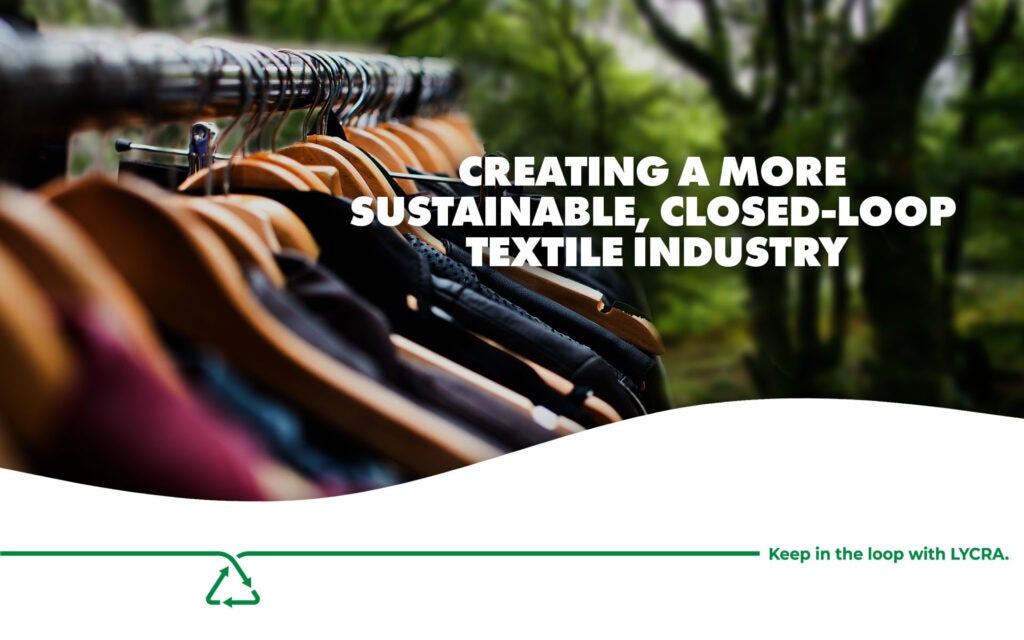
This spring, the LYCRA Company commissioned an online study on consumer attitudes related to a variety of sustainability topics. The research took place in the US, Germany, Italy, China, and Brazil, with a sample of three thousand adults. This article provides a brief overview of the results.
Ranking important global issues
The survey asked participants to select what they believe are the top three issues in the world today. Climate change/global warming was the top response (43%), followed by global peace/no war (34%) and poverty (27%). The study did reveal some regional differences, with Chinese respondents ranking air pollution as their second most important issue, while Brazilian respondents cited poverty (44%), education (42%), and hunger/food insecurity (40%) as their top issues.
Sustainability in the apparel industry
Respondents were asked to select what they thought were the most important things for clothing and apparel brands and retailers to focus on. The top three responses were:
- Reduce the amount of harmful chemicals used in the manufacturing process (56%)
- Reduce the amount of carbon emissions during the manufacturing process (51%)
- Make clothes that are durable and last longer (50%)
These responses align well with U.N. SDG #12 (Responsible Production and Consumption), providing a starting point for companies that want to improve their sustainability profiles.

Consumer buying behaviour
When asked to indicate their level of agreement with statements on garment shopping and purchase habits, the top three responses were:
- I buy fewer, higher quality garments that last longer (67%)
- I tend to look if the composition of garments has/is made of sustainable fibres/materials (65%)
- I try to limit the amount of new clothing I buy because I’m very conscious of the impact on the environment (62%)

These insights show that while respondents claim to be motivated to do the right thing, there also appear to be significant barriers to action, as seen by some of their responses to other questions. For example, 53% of respondents said they find it difficult to tell which clothing brands are more sustainable than others, while 57% indicated they search for sustainable clothing but can’t always find it in styles they like.

As responsible members of the value chain, we all need to focus on sustainability education and provide credible, easy-to-understand information about our products. As the EU Green Deal and other legislation rollout, ideally, promotional standards will become more consistent, providing consumers with the critical information they need to make informed choices.

